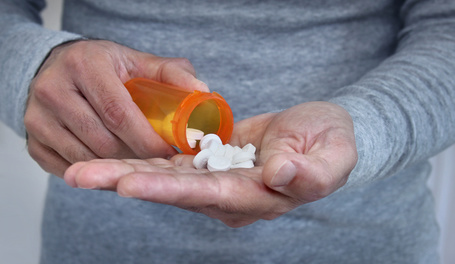Whether you’re nursing a headache or trying to minimise the risk of a heart attack, aspirin is a staple in most medicine cabinets. In fact, some experts have so much faith in aspirin’s protective powers that they claim it could guard against cancer in the colon, oesophagus, stomach and prostate. And most recently, the humble inflammation medication has even been associated with the tantalising possibility that its properties could help minimise the onset of Alzheimer’s disease.
 “Aspirin is the one drug I would take to a desert island with me,” muses Mark Fendrick, an associate professor of internal medicine at the University of Michigan Medical School. “It costs two cents a day and its benefits are amazing. And if it had no side effects at all, we could give it to everybody.”
“Aspirin is the one drug I would take to a desert island with me,” muses Mark Fendrick, an associate professor of internal medicine at the University of Michigan Medical School. “It costs two cents a day and its benefits are amazing. And if it had no side effects at all, we could give it to everybody.”
While it does seem like a bit of a miracle drug, there are growing concerns about the risks of popping a daily aspirin.
Sensitive stomachs
One of the most alarming side-effects is the fact that aspirin significantly decreases the level of stomach protection, which increases the risks of developing perforated ulcers or bleeding in the GI tract. Every year this sort of bleeding kills more Americans than asthma or cervical cancer, which means that it’s definitely not a side-effect to be taken lightly. The latest research out of the UK has also sparked debate, with a team of medical scientists from Oxford University claiming that a daily dose of aspirin is behind 3000 deaths a year.
There’s even more, cause for concern if you’re aged 75 or over, with a recent study suggesting that digestive tract bleeding is more severe for older people who take aspirin following a heart attack or stroke. The risks are slightly lower if you’re aged 65 or under, though definitely still exist.
What’s right for you
 So how do you decide whether a daily dose of aspirin could help your heart or hinder your health? Ultimately, there’s no simple formula. Regardless of how old you are or how long you’ve been relying on aspirin, the absolute best thing to do is to book an appointment with your GP, chat about your concerns and develop a holistic view of your own unique situation. Chances are a daily dose of aspirin could be completely harmless, or even beneficial. But when it comes to your health it’s always best to arm yourself with knowledge and ensure you’re relying on the best solutions for your unique needs.
So how do you decide whether a daily dose of aspirin could help your heart or hinder your health? Ultimately, there’s no simple formula. Regardless of how old you are or how long you’ve been relying on aspirin, the absolute best thing to do is to book an appointment with your GP, chat about your concerns and develop a holistic view of your own unique situation. Chances are a daily dose of aspirin could be completely harmless, or even beneficial. But when it comes to your health it’s always best to arm yourself with knowledge and ensure you’re relying on the best solutions for your unique needs.









Join the Discussion
Type out your comment here:
You must be logged in to post a comment.